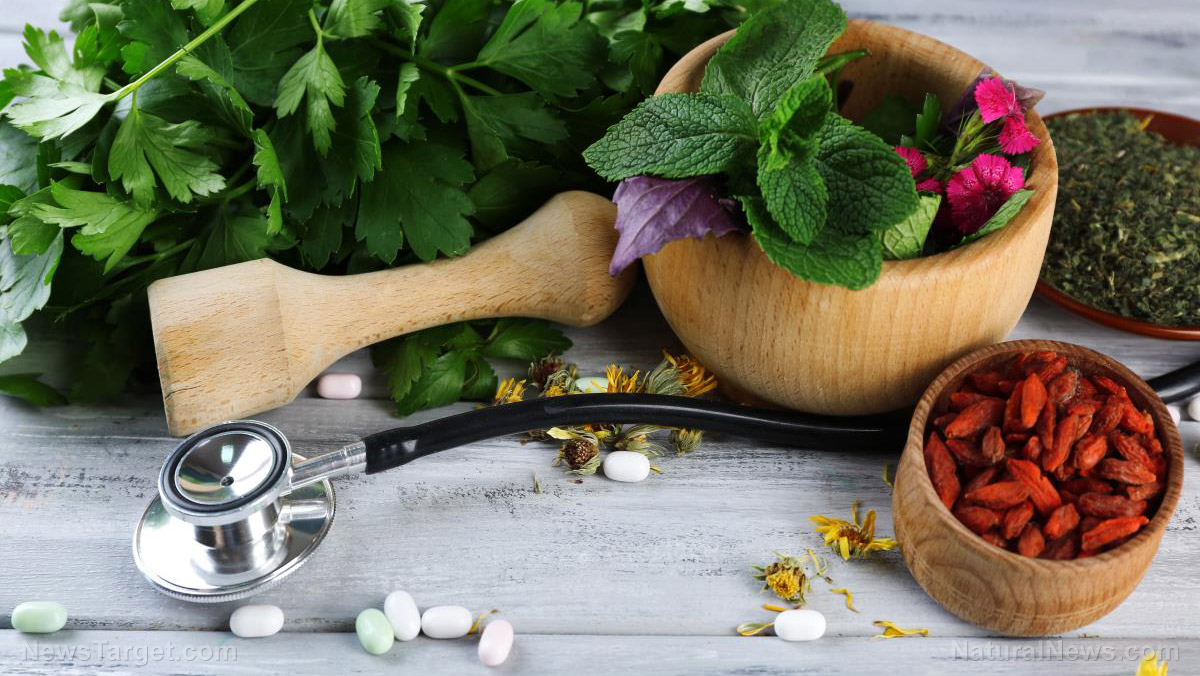02/19/2018 / By Janine Acero
Some of the most painful health conditions are those that affect the digestive system. One such example is the peptic ulcer, which is characterized by a lesion in the protective covering of the mucus (mucosa) around the stomach caused by inflammation. This triggers gastric acids to further eat away at the stomach lining or small intestine. This type of ulcer is highly painful but easily treatable, though it can cause serious issues if ignored for a long time.
There are three types of peptic ulcers: esophageal ulcers are ulcers that develop inside the esophagus; gastric ulcers develop inside the stomach; and duodenal ulcers develop in the upper section of the small intestines, called the duodenum.
Different factors can cause inflammation of the stomach lining or small intestine, which include:
- Excessive stress
- Overproduction of acid in the stomach
- Helicobacter pylori (H. pylori) bacteria infection in the gut
- Smoking
- Excessive drinking
- Prolonged use of NSAID pain relievers such as aspirin, ibuprofen, and other anti-inflammatory drugs
- Overdosing on vitamin C
- Radiation therapy
- Stomach cancer
Symptoms of a peptic ulcer
The most common symptom of peptic ulcer is burning abdominal pain that extends to the chest, which can range from mild to severe. Other common signs of peptic ulcer include heartburn or acid reflux, bloating, nausea, vomiting, blood in the stool, changes in appetite, food intolerance, indigestion, hunger pains,weight loss, and pain during the night (patient may wake up in the middle of sleep due to stomach pain).
Small peptic ulcers may not produce any symptoms in the early phases. However, untreated ulcers can become worse over time. They can lead to other more serious health complications such as perforation, wherein a hole develops in the stomach lining or small intestine and causes an infection; internal bleeding, which can lead to blood loss; and scar tissue, which makes it difficult for food to pass through the digestive tract.
All these complications are serious and may require surgery. Seek urgent medical attention if you experience sudden, sharp abdominal pain; fainting; excessive sweating; blood in vomit or stool; abdomen that’s hard to the touch; abdominal pain that worsens with movement; or confusion, as this may be a sign of shock.
Treating peptic ulcers at home
- Aloe vera – Aloe vera is an ingredient in many cosmetics and health products. This plant is a popular home remedy that has anti inflammatory properties, which may help soothe the irritated stomach and may also help reduce the production of too much acid. Aloe vera is also an excellent detoxifier.
- Banana – Bananas promote cell growth and increase mucus secretion in the intestinal tract. This helps heal ulcers and prevent other health issues related to the digestive system. In addition, an antibacterial substance in bananas may inhibit the growth of the bacterium H. pylori, which is one of the causes of peptic ulcer. Bananas are also rich in potassium, which helps regulate fluid levels in your body and gives relief from acid reflux.
- Baking soda – Baking soda is a bicarbonate, which can help the air trapped inside the stomach to escape one way or the other. It can also neutralize stomach acids and help things pass through your intestine. Drink a glass of water with one to two teaspoons of baking soda to relieve symptoms.
- Betaine – Betaine is an amino acid found in wheat products that promote protein synthesis in the body. Betaine deficiency can lead to indigestion, so adding wheat products to your diet is a good way to ensure you have enough of this amino acid to protect your digestive system.
- Cabbage – Consumption of cabbage increases the level of vitamin C, which tends to be very low in gastric juices of patients with peptic ulcers.
- Chamomile – Chamomile is a medicinal herb that has numerous health benefits, it’s no surprise that it’s an effective home remedy for peptic ulcer. Adding chamomile tea to your daily meal reduces stomach aches, improves digestion, and also relieves colitis symptoms (inflammation of the lining of the large intestine).
- Licorice – Licorice root helps produce mucus in your digestive system, which is a good remedy against NSAID drugs like aspirin, which can cause peptic ulcer. Licorice roots are effective for soothing stomach inflammation and pain. (Related: Licorice Treats Peptic Ulcers and Helicobacter Pylori Infection.)
Did you know that lemon and flaxseed together can also treat peptic ulcer? Learn more about this tidbit and other home remedies at NaturalCures.news.
Sources include:
InLifeHealthCare.com
EverydayHealth.com
HealthLine.com





















